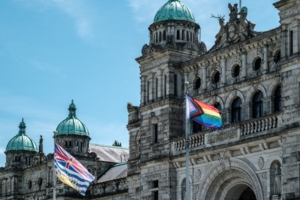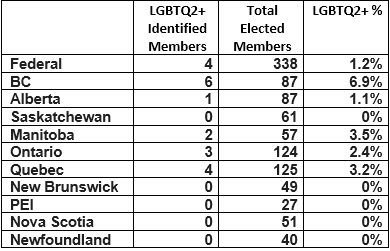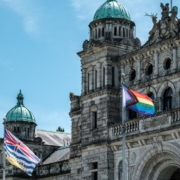BC Elects Queerest Legislature in Canada
BC Elects Queerest Legislature in Canada
November 1, 2020
By Scott Daly, VPS Director of Communications

BC’s legislature is set to keep its title as the national leader in LGBTQ2+ representation. Six LGBTQ2+ identified MLAs are projected to be elected in the 87 seat assembly, or roughly 7% of the seats. If no other seats change hands once mail-in ballots are counted, this is twice the representation than the next best legislature in Canada, in Manitoba.
According to ProudPolitics, the BC Green Party ran five queer candidates, the BC NDP ran seven and the BC Liberals ran none. All six elected LGBTQ2+ members belong to the BC NDP caucus.

Queer Representation “Abysmal” Across the Country
But even with this election, queer represenation in Canada’s elected bodies continues to lag. No new LGBTQ2+ candidates were elected and BC still has yet to elect a trans MLA. Those that are elected tend to be white, cisgender men.
“Let’s be clear, LGBTQ2 representation across the country right now is abysmal,” said Dr. Janni Aragon, Director of Technology and Society at the University of Victoria. “BC is better but it’s still not spectacular.”
Aragon cites BC’s election of an NDP government and the dominance of right-of-centre parties in other provinces as one reason for the discrepancy in LGBTQ2+ representation. She adds that more conservative parties tend to have less candidate diversity and fewer policies to improve equity and inclusion of traditionally marginalized groups.
Barriers To Greater Representation
Despite some progress, many barriers remain to improve LGBTQ2+ representation in elected legislatures in Canada, especially for trans*, non-binary, Indigenous and people of colour candidates. Queer-identified people tend to be poorer and have more precarious employment which makes it harder to put jobs and lives on hold to devote to a campaign.
Another reason cited by Aragon is the hostility that many LGBTQ2+ candidates receive during the campaign, which she believes has gotten worse with the highly polarized and personalized rhetoric in American politics. One example in the BC election happened to Green candidate Nicola Spurling, who identifies as trans, who faced repeated transphobic attacks during the campaign.
“Queer candidates risk a lot to run,” says Aragon. “Part of it is what I call the “trickle-up” effects from U.S. politics. What happens down there affects us up here. Many believe that homophobia, transphobia or racism aren’t the same in Canada but I would say they are perhaps just more covert.”


